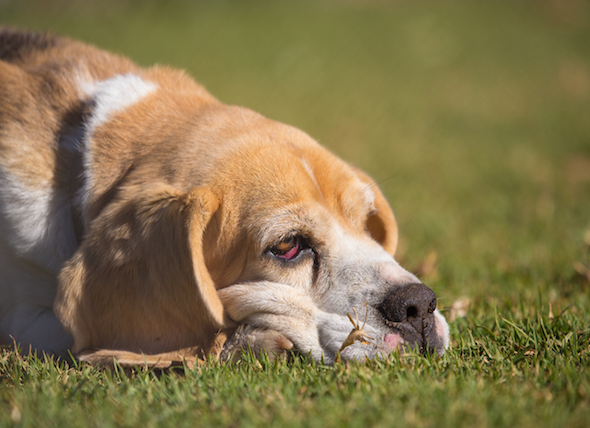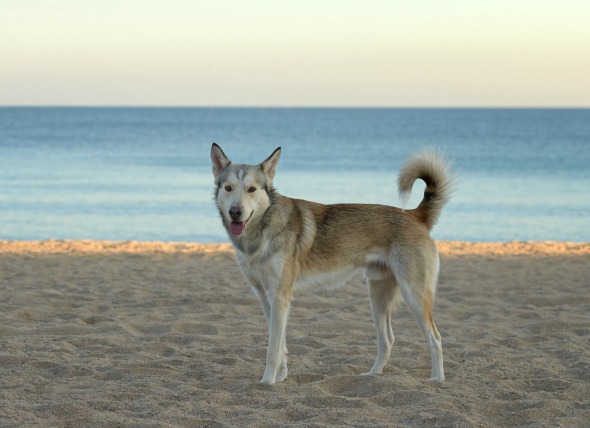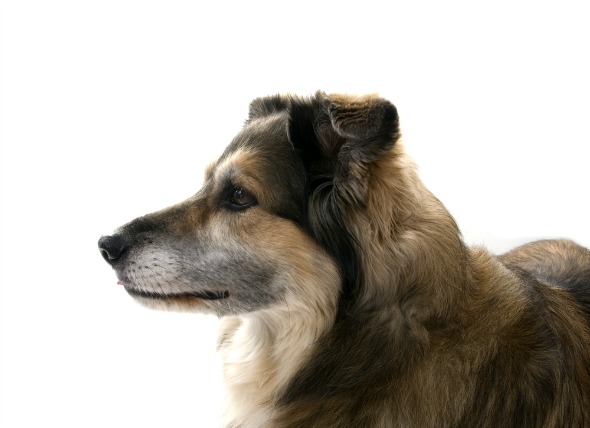

Bile serves important functions in the digestion of food and removal of waste materials from the body. Bile is created in the liver and stored in the gallbladder until food has been ingested. It is then released into the small intestine to aid in digestion of food and to emulsify the food so that it can be used appropriately by the body.
Bilious vomiting syndrome occurs when bile abnormally enters the stomach from the intestine, causing irritation and vomiting. The presence of bile is indicated by a watery, yellow-green substance in the vomit contents. If vomiting does not occur and the bile remains in the stomach, the irritation to the stomach can lead to gastric reflux.
Vomiting is usually seen in the morning or late night just before eating, especially in dogs that are fed once daily. This might be due to prolonged periods between meals, or to related stomach inactivity, which aggravates the bile reflux.
This condition is commonly seen in older dogs but can occur at any age. Both genders are equally affected.
You will need to give a thorough history of your dog's health, a background history of symptoms, possible incidents that might have led to this condition, and recent activities. As much as you can, you will need to tell your veterinarian when the symptoms began, and how frequently the vomiting occurs.
Your veterinarian will then perform a thorough physical exam on your dog, with a complete blood profile, a chemical blood profile, a complete blood count, and a urinalysis.
A history of intermittent vomiting with bile contents is usually enough for a preliminary diagnosis. In the course of diagnosing this disease, laboratory testing is not of much help as the results are usually within normal ranges. Specific radiographic and ultrasound imaging studies of the abdomen may reveal delayed stomach motility. Endoscopic examination often returns normal in these patients.
If there is no serious underlying disease present, your doctor will decide on an appropriate line of treatment based on the symptoms. Drugs to enhance gastric motility will be used to overcome delayed emptying of stomach, increase stomach and gut motility and thus prevent reflux. Also, drugs that will decrease acid secretion in the stomach can be used to prevent damage to the stomach wall due to the increased acidic contents of the bile.
Most patients respond well to such treatment; the length of time your dog is going to need medication will depend on its individual response. Some animals respond quickly to the treatment, while others need a longer course of medication. If your dog is suffering chronic bilious vomiting, dietary management will be a very important component of treatment, usually involving feeding small, frequent meals, especially late at night. Preventing the stomach from being empty for long periods of time will help to increase normal stomach motility. Diets low in fat and fiber content will also help the stomach to empty and reduce gastric retention of food.
Your veterinarian may also suggest canned or liquefied diets, which also can be helpful in such patients because solid food tend to stay longer in the stomach.
The prognosis is excellent for most animals, as they generally respond well to dietary changes and medications.
 Red Eye in Dogs
Inflammation of the Eye in Dogs
Red eye causes th
Red Eye in Dogs
Inflammation of the Eye in Dogs
Red eye causes th
 Noisy Breathing in Dogs
Stertor and Stridor in Dogs
Unusually loud breath
Noisy Breathing in Dogs
Stertor and Stridor in Dogs
Unusually loud breath
 Inability to Protrude or Retract Penis in Dogs
Paraphimosis and Phimosis in Dogs
Phimosis is a c
Inability to Protrude or Retract Penis in Dogs
Paraphimosis and Phimosis in Dogs
Phimosis is a c
 Neck and Back Pain in Dogs
Unfortunately, your dog can not tell you where it
Neck and Back Pain in Dogs
Unfortunately, your dog can not tell you where it
 Low Blood Oxygen in Dogs
Hypoxemia in Dogs
When the brain is deprived of o
Low Blood Oxygen in Dogs
Hypoxemia in Dogs
When the brain is deprived of o
Copyright © 2005-2016 Pet Information All Rights Reserved
Contact us: www162date@outlook.com